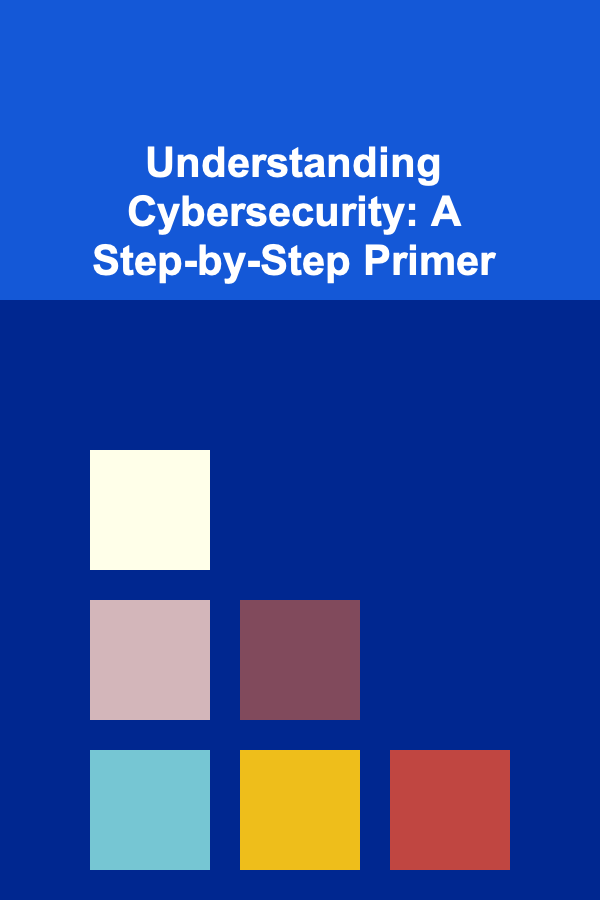
How to Get ChatGPT to Generate Podcast Scripts
ebook include PDF & Audio bundle (Micro Guide)
$12.99$7.99
Limited Time Offer! Order within the next:

In today's digital age, podcasting has become a highly popular medium for content creators to share their ideas, insights, and stories. Whether you're an experienced podcaster or just starting, one of the key challenges is creating high-quality, engaging podcast scripts. Fortunately, tools like ChatGPT can help ease this process, saving you time and boosting your creativity. But how exactly can you get ChatGPT to generate podcast scripts that sound natural, interesting, and entertaining?
This article will walk you through the process of using ChatGPT to create podcast scripts. From understanding the strengths of the model to mastering prompt engineering, we'll cover everything you need to know to harness the full potential of this AI tool for your podcasting needs.
Understanding ChatGPT's Strengths and Limitations
Before diving into the specifics of generating podcast scripts, it's important to understand the strengths and limitations of ChatGPT.
Strengths of ChatGPT for Podcast Scripts
- Fast Content Generation: One of ChatGPT's biggest advantages is its ability to generate text quickly. If you're on a tight deadline or need to come up with fresh ideas in a short amount of time, ChatGPT can provide a great starting point.
- Creative Variety: ChatGPT can produce a wide range of content styles, including formal, casual, humorous, informative, and more. This versatility is especially helpful for podcasters who want to experiment with different tones and formats.
- Topic Research: If you're unsure about a particular topic, ChatGPT can help gather basic research or provide a high-level overview that you can further build upon.
- Idea Generation: ChatGPT excels at brainstorming podcast topics or helping you narrow down ideas if you're feeling stuck or uninspired.
Limitations of ChatGPT for Podcast Scripts
- Lack of Personal Experience: While ChatGPT can provide knowledge on a wide range of subjects, it lacks personal experience or human insights, which may be crucial for creating authentic podcast content.
- Depth of Research: While ChatGPT can generate informative text, it doesn't have access to real-time data or the ability to conduct deep, specialized research. For in-depth podcast episodes, additional research may be necessary.
- Over-simplification: Occasionally, ChatGPT might generate content that is overly simplified or lacks nuance, which could make certain episodes feel less dynamic or rich in detail.
- Repetition: Sometimes, the content generated may contain repetition or overly generic phrases. This is something you'll need to tweak and refine to make it more engaging.
Understanding both the strengths and limitations of ChatGPT will help you use it more effectively as part of your podcast production process.
Structuring Your Podcast Script
Before you start generating content, it's essential to have a clear structure in mind. Most podcasts follow a similar structure, which typically includes an introduction, the main body, and a conclusion. Here's a breakdown of what each section might look like and how to use ChatGPT to generate content for each:
1. Introduction
The introduction is your first chance to grab the listener's attention. It should be engaging, brief, and set the tone for the rest of the episode.
What to Include:
- Podcast Name and Episode Number: Start by introducing the podcast and the episode number.
- Hook or Question: Capture the listener's interest with a compelling hook or a provocative question.
- Guest Introduction (if applicable): If you have a guest on the episode, provide a brief introduction of who they are and what they do.
How ChatGPT Can Help:
- Create a Catchy Hook: You can prompt ChatGPT to write an attention-grabbing sentence or question for your introduction.
- Provide Guest Background: If you provide details about your guest, ChatGPT can craft a well-written introduction that sounds professional and natural.
Example Prompt for ChatGPT:
"Write an engaging podcast introduction for an episode of a self-improvement podcast where the guest is a productivity expert. The hook should focus on how to increase daily productivity by 200%."
2. Main Content/Body
This is the core of the podcast where you delve into the topic of the episode. Depending on the format, it could include interviews, discussions, or storytelling.
What to Include:
- Introduction to the Topic: Start by introducing the main theme of the episode and provide context.
- Key Points and Subtopics: Break down the topic into several points or sections. Each section should build on the last, guiding the listener through a logical flow of ideas.
- Personal Insights or Anecdotes: If applicable, weave in your personal experiences or anecdotes. You can also incorporate guest insights.
How ChatGPT Can Help:
- Organize the Content: If you give ChatGPT an outline of key points, it can help you expand each one into a script.
- Generate Transitions: ChatGPT can also help create smooth transitions between sections, ensuring the podcast flows naturally.
- Interactive Prompts: ChatGPT can generate specific content based on your prompts, such as asking for expert opinions, defining concepts, or generating storytelling elements.
Example Prompt for ChatGPT:
"Write the main body of a podcast script about how social media influences mental health. The episode should cover both positive and negative aspects, with statistics and examples."
3. Conclusion
The conclusion is where you wrap up the episode, leaving the listener with something to think about or take action on.
What to Include:
- Summary: Briefly recap the key takeaways from the episode.
- Call to Action: Encourage listeners to subscribe, leave a review, or check out additional resources.
- Teaser for Next Episode (if applicable): If relevant, tease what's coming up next to encourage listeners to return.
How ChatGPT Can Help:
- Wrap Up the Episode: Ask ChatGPT to summarize the key points in a concise, memorable way.
- Create a Call to Action: If you need a specific call to action, such as directing listeners to a website or social media, ChatGPT can craft that for you.
Example Prompt for ChatGPT:
"Write a conclusion for a podcast episode on time management techniques, reminding listeners to subscribe and check out the next episode on productivity hacks."
Generating Engaging and Natural Dialogue
Podcasts are all about conversation, whether you're speaking solo or hosting an interview. Generating natural dialogue can be a bit tricky with AI, but with the right approach, ChatGPT can assist in writing script portions that sound fluid and conversational.
Using ChatGPT for Solo Podcasts
For solo podcasts, you'll want the script to sound like you're speaking directly to the listener. ChatGPT can help you write engaging monologues or talking points that maintain a conversational tone. Just remember to review and tweak the generated text to make it sound more personal.
Example Prompt for ChatGPT:
"Write a 5-minute solo podcast script about overcoming imposter syndrome. Make it sound conversational and friendly, as if I'm talking directly to a listener."
Using ChatGPT for Interviews
When scripting interviews, ChatGPT can help create both the questions you ask and the possible responses you might get. You'll need to guide the model with context, such as the interviewee's background or the general theme of the interview.
Example Prompt for ChatGPT:
"Write a podcast interview script with a nutritionist discussing the benefits of plant-based diets. Include a series of questions and potential answers."
Fine-Tuning the Script for Your Audience
Once ChatGPT has generated the initial podcast script, the next step is to fine-tune it according to your target audience. ChatGPT can generate content that is tailored to a particular age group, profession, or interest group.
Tone and Style Adjustments
By specifying the tone and style you want for your podcast, you can guide ChatGPT to match your desired voice. For instance, if your audience is young and energetic, you can ask for a script with a more playful tone. Conversely, for a professional, business-oriented podcast, you may want a more formal script.
Example Prompt for ChatGPT:
"Rewrite the script to make it more energetic and upbeat, appealing to a younger, college-age audience interested in entrepreneurship."
Adding Personal Flair
While ChatGPT can produce a solid script, it's important to add your personal flair. Inject your own experiences, opinions, and stories to make the script feel more authentic and relatable.
Editing and Refining the Script
While ChatGPT provides a strong foundation for your podcast script, it's important to edit the final output. This includes checking for clarity, flow, and pacing, as well as ensuring that the script fits within the time constraints of your episode.
Tips for Editing:
- Ensure Natural Flow: Read the script out loud to check if it sounds natural.
- Trim Unnecessary Sections: Cut out any repetitive content or sections that don't add value.
- Incorporate Personal Touches: Add anecdotes or personal references to make the content feel more engaging.
Conclusion
ChatGPT is an incredibly powerful tool for generating podcast scripts, whether you're working on solo episodes, interviews, or narrative-driven content. By understanding its strengths and limitations, structuring your scripts effectively, and fine-tuning the content to match your audience, you can leverage AI to save time and enhance the quality of your podcast.
Although ChatGPT is a fantastic resource, remember that the best podcast content is always authentic, creative, and engaging. Use ChatGPT as a tool to spark ideas, generate content, and provide structure, but always make sure to add your unique voice and insights to the final product.
With the right approach and a bit of editing, ChatGPT can help you produce professional, engaging, and dynamic podcast scripts that keep your listeners coming back for more.

How to Grow Your YouTube Audience to Increase Your Earnings: An Actionable Guide
Read More
How to Start a House Renovation Business: Key Steps to Success
Read More
Step-by-Step Guide to Successful DIY Home Improvement Projects
Read More
Understanding Cybersecurity: A Step-by-Step Primer
Read More
How to Manage Volleyball Player Burnout
Read More
How to Develop a Marketing Planner for a Non-Profit Organization
Read MoreOther Products

How to Grow Your YouTube Audience to Increase Your Earnings: An Actionable Guide
Read More
How to Start a House Renovation Business: Key Steps to Success
Read More
Step-by-Step Guide to Successful DIY Home Improvement Projects
Read More
Understanding Cybersecurity: A Step-by-Step Primer
Read More
How to Manage Volleyball Player Burnout
Read More